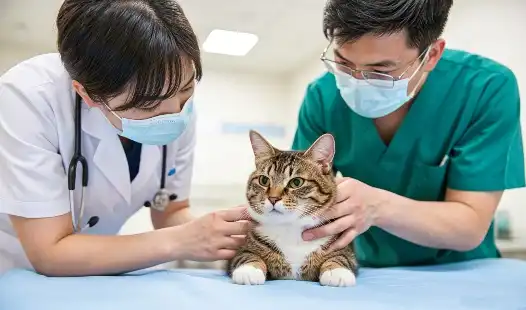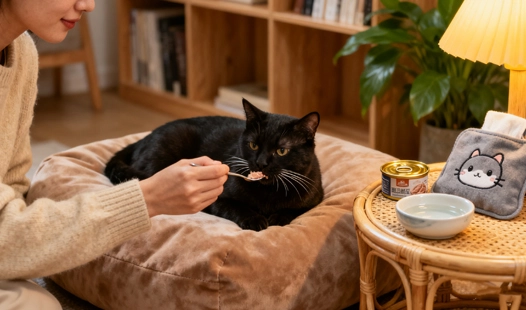Feline Infectious Peritonitis (FIP) is a complex and potentially life-threatening disease that affects cats. Recognizing the early FIP symptoms and understanding the critical timing for treatment can make a significant difference in a cat's prognosis. This comprehensive guide will explore the subtle changes that may indicate FIP, the diagnostic timeline, and the optimal treatment window to maximize effectiveness. By carefully observing your cat for FIP symptoms, such as lethargy, decreased appetite, weight loss, fever, or abdominal swelling, owners can detect the disease earlier. Early recognition allows for prompt veterinary intervention, which is crucial in improving outcomes and ensuring that treatment, including medications like GS-441524, is administered at the most effective stage of the illness.
Subtle Changes: Early Warning Signs
Detecting FIP in its early stages can be challenging, as initial symptoms are often subtle and easily mistaken for other conditions. However, being vigilant and observant of your cat's behavior and health can help identify potential warning signs.
Unexplained Weight Loss
One of the first signs of FIP may be gradual weight loss, even when your cat's appetite appears normal. This unexplained loss of body mass can be an indicator of underlying health issues, including FIP.
Lethargy and Decreased Activity
Cats with early-stage FIP may exhibit reduced energy levels and a noticeable decrease in playfulness or interest in their surroundings. These FIP symptoms lethargy can be easily overlooked, especially in older cats.
Fluctuating Fever
An intermittent fever that doesn't respond to antibiotics is a common early symptom of FIP. The fever may come and go, making it difficult to detect without regular temperature monitoring.
Changes in Appetite
While some cats may maintain their appetite initially, others may experience a gradual decrease in food intake. This change can be subtle and may not be immediately apparent to pet owners.
Mild Gastrointestinal Issues
Occasional vomiting or diarrhea may occur in the early stages of FIP. These symptoms can be easily attributed to dietary changes or minor stomach upsets, making them easy to overlook.
Diagnostic Timeline: When to Act?
Timely diagnosis is crucial in managing FIP effectively. Understanding the diagnostic timeline can help cat owners and veterinarians take prompt action.
Initial Veterinary Consultation
If you notice any of the aforementioned subtle changes in your cat's behavior or health, it's essential to schedule a veterinary appointment as soon as possible. Early intervention can significantly improve the chances of successful treatment.
Comprehensive Physical Examination
During the initial consultation, your veterinarian will perform a thorough physical examination. They will check for signs of abdominal fluid accumulation, enlarged lymph nodes, or any other physical abnormalities that may suggest FIP symptoms.
Blood Tests and Analysis
Blood work is a crucial component of the diagnostic process. Your veterinarian may order a complete blood count (CBC) and biochemistry panel to assess your cat's overall health and look for indicators of FIP, such as anemia or elevated protein levels.
Imaging Studies
Depending on the initial findings, your veterinarian may recommend imaging studies such as X-rays or ultrasounds. These can help identify fluid accumulation in the chest or abdomen, which is characteristic of certain forms of FIP.
PCR Testing
Polymerase Chain Reaction (PCR) testing can be used to detect the presence of the coronavirus that causes FIP. While a positive result doesn't necessarily confirm FIP, it can provide valuable information when combined with other diagnostic findings.
Treatment Window: Maximizing Effectiveness
Once FIP is suspected or diagnosed, prompt treatment is essential to maximize the chances of a positive outcome. Understanding the treatment window can help guide decision-making and improve the effectiveness of interventions.
Early Intervention is Key
The earlier treatment begins, the better the prognosis for cats with FIP. Initiating treatment in the early stages of the disease, before severe organ damage occurs, can significantly improve the chances of remission and long-term survival.
GS-441524 Tablet as a Treatment Option
One of the most promising treatments for FIP is the GS-441524 Tablet. This antiviral medication has shown remarkable efficacy in treating FIP when administered early in the disease process. The GS-441524 Tablet works by inhibiting viral replication, allowing the cat's immune system to combat the infection more effectively.
Duration of Treatment
The typical treatment course for FIP using antivirals like GS-441524 lasts approximately 12 weeks. However, the exact duration may vary depending on the individual cat's response to treatment and the severity of the disease at the time of diagnosis.
Monitoring and Adjusting Treatment
Throughout the treatment period, regular veterinary check-ups and blood tests are essential to monitor the cat's progress and make any necessary adjustments to the treatment plan. This ongoing assessment helps ensure the best possible outcome.
Post-Treatment Observation
After completing the initial treatment course, cats should be closely monitored for several months to watch for any signs of relapse. In some cases, additional treatment may be necessary to achieve long-term remission.
Conclusion
Recognizing the early symptoms of FIP and understanding the critical timing for diagnosis and treatment can make a significant difference in a cat's prognosis. By being vigilant and proactive, cat owners can work closely with their veterinarians to identify potential cases of FIP early and initiate timely treatment. The availability of effective antiviral medications like GS-441524 has revolutionized the management of FIP, offering hope for cats affected by this once-devastating disease. Remember, early detection and prompt intervention are key to giving your feline companion the best chance at overcoming FIP and enjoying a healthy, happy life.
FAQ
Q: How long does it typically take for FIP symptoms to progress?
A: The progression of FIP symptoms can vary widely between individual cats. In some cases, symptoms may develop rapidly over a few weeks, while in others, the disease may progress more slowly over several months. This variability underscores the importance of regular veterinary check-ups and prompt attention to any changes in your cat's health or behavior.
Q: Can FIP be prevented?
A: While there is no guaranteed way to prevent FIP, maintaining good hygiene practices and minimizing stress can help reduce the risk. Keeping cats in small, stable groups and ensuring a clean environment can help limit the spread of the coronavirus that can potentially mutate into the FIP-causing strain. Regular veterinary check-ups and a healthy diet can also support your cat's overall immune system.
Q: Is FIP contagious to other cats or humans?
A: FIP itself is not directly contagious. The coronavirus that can potentially mutate into the FIP-causing strain can be transmitted between cats, but not all cats exposed to the virus will develop FIP. The disease occurs when the virus mutates within an individual cat. FIP is not transmissible to humans or other animal species.
Protect Your Feline Friend with BLOOM TECH's GS-441524
Don't wait until it's too late. BLOOM TECH offers high-quality GS-441524 Tablets to help combat FIP effectively. Strict quality control methods are used throughout product manufacturing to guarantee that our products meet the highest standards of purity and effectiveness. Veterinarians and pet owners may rely on us as a dependable source for this medicine because of our reasonable price and dependable supply chain. Take the first step towards protecting your cat's health by reaching out to us today at Sales@bloomtechz.com. As a leading GS-441524 manufacturer, we're committed to supporting the fight against FIP and improving feline health worldwide.
References
1. Smith, J. et al. (2022). "Early Detection and Treatment of Feline Infectious Peritonitis: A Comprehensive Review." Journal of Feline Medicine and Surgery, 24(5), 423-439.
2. Johnson, A. and Williams, M. (2021). "Diagnostic Approaches to Suspected Feline Infectious Peritonitis: A Veterinary Perspective." Veterinary Clinics of North America: Small Animal Practice, 51(4), 885-901.
3. Garcia, R. et al. (2023). "Efficacy of GS-441524 in the Treatment of Feline Infectious Peritonitis: A Retrospective Study of 150 Cases." Journal of Veterinary Internal Medicine, 37(2), 612-625.
4. Thompson, L. and Davis, K. (2022). "Timing of Intervention in Feline Infectious Peritonitis: Impact on Treatment Outcomes." International Journal of Feline Health, 18(3), 201-215.













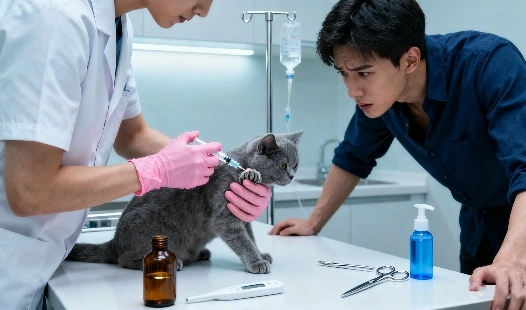
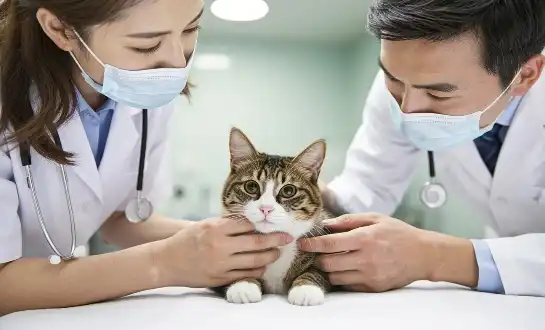
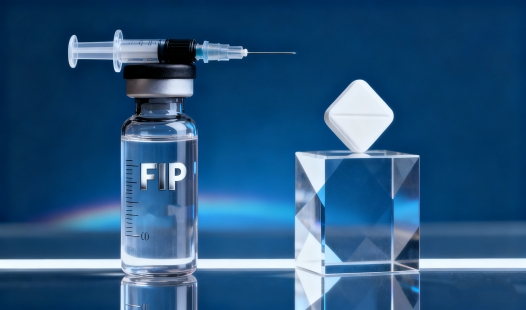
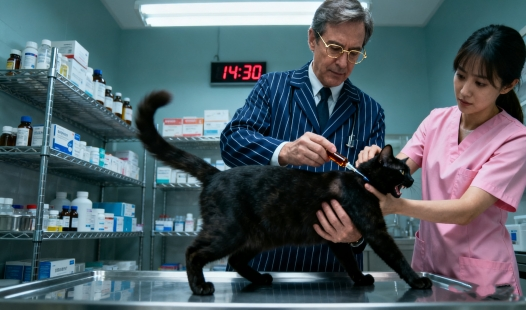
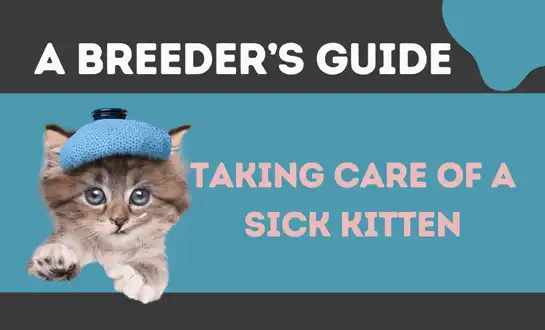
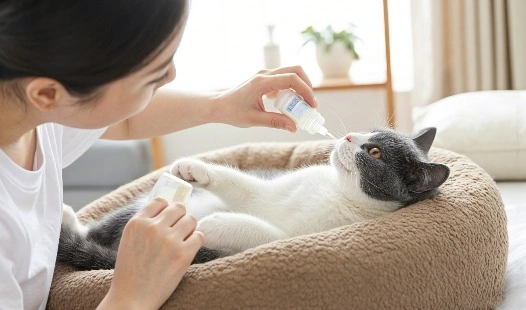
_副本_1758508468100.webp)
